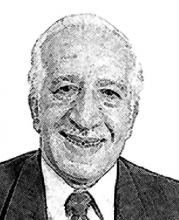You are here
Jordan’s pivotal role in the region
Nov 15,2014 - Last updated at Nov 15,2014
His Majesty King Abdullah’s meetings with Israeli Prime Minister Benjamin Netanyahu and American Secretary of State John Kerry send more than one positive signal.
The meetings would have been more forthcoming had the main protagonists accepted a Palestinian request by President Mahmoud Abbas to join the talks, while he was still in Amman.
Some items on the agenda were arrangements to defuse the simmering tensions among Arabs in the West Bank and inside Israel.
Plans were specified in detail; they include releasing Arab detainees, barring Jewish extremist from attempts to Judaise Islamic holy places by sharing the courtyards of Al Aqsa Mosque, permission for Palestinians of all age groups to perform Friday prayers, and putting an end to the heavy hand of the military in the vicinity of the holy places.
The Israeli prime minister was accommodating, willing to abort a third Intifada prior to the Israeli elections slated in a few months.
Netanyahu accepts the custodial role the Hashemite family has had for over a century of the holy places, and expressed desire to maintain the legal status quo of the Haram Al Sharif compound.
Now, with a thaw in the Jordanian-Israeli relations, it is normal to have new horizons opened for the regional players, including Saudi Arabia, Egypt and Iraq.
Following the Gaza bombing, Israel should give peace a chance, in compliance with the Saudi peace initiative, which had the consensus of all Arab states, and which will deny Tehran any role in obstructing the Israelis’ and the Arabs’ desire to put an end to bloodshed and destruction.
Kerry saw in the trilateral meetings in Amman an opening to restart the Palestinian-Israeli peace negotiations, on hold for months, without which no lasting peace will ever be established in Jerusalem.
It has always been the Palestinian tragedy that fuelled all radical groups since 1948, and had its expression in more than one military coup d’état in neighbouring capitals, like Damascus, Cairo or Baghdad.
Some manifestations of that frustrated anger come in the form of terrorist groups like Al Qaeda, Black September, or the Iraqi Brigades.













